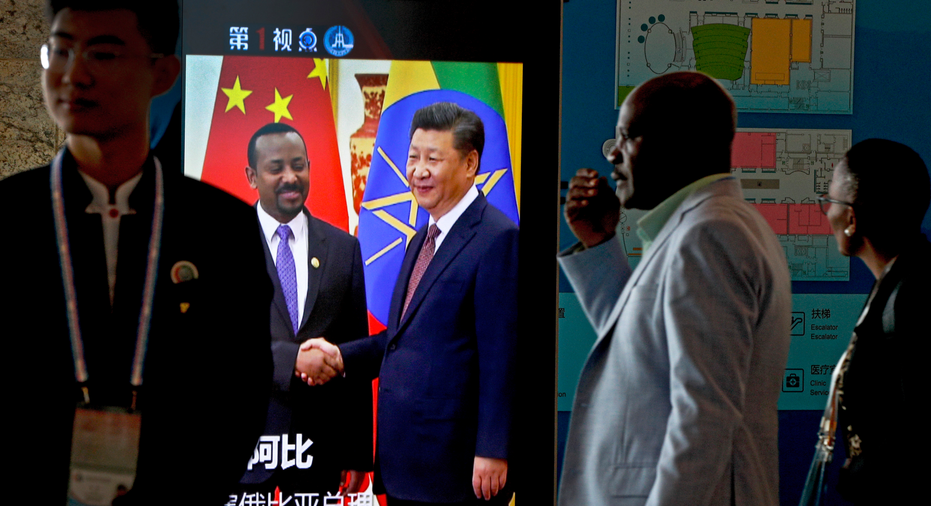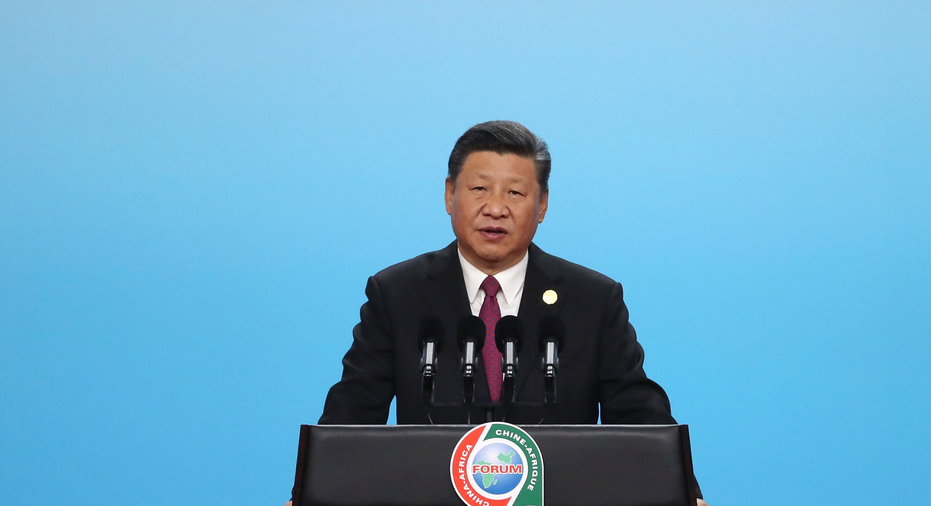China's Xi pledges $60 billion in financing for Africa
BEIJING – Chinese President Xi Jinping on Monday pledged $60 billion in financing for projects in Africa in the form of assistance, investment and loans, as China furthers efforts to link the continent's economic prospects to its own.
Speaking to a gathering of African leaders in Beijing, Xi said the figure includes $15 billion in grants, interest-free loans and concessional loans, $20 billion in credit lines, $10 billion for "development financing" and $5 billion to buy imports from Africa.
In addition, he said China will encourage companies to invest at least $10 billion in Africa over the next three years.
China's outreach to Africa aims to build trade, investment and political ties with a continent often seen as overlooked by the U.S. and other Western nations. That has provided lucrative opportunities for Chinese businesses, while African nations are often happy to accept China's offers that come without demands for safeguards against corruption, waste and environmental damage.
No details were given on specific projects, although Xi said China was planning initiatives in eight areas, including providing $147 million in emergency food aid, sending 500 agricultural experts to Africa, and providing scholarships, vocational training and trade promotion opportunities.
The pledge comes on top of a 2015 promise to provide African countries with $60 billion in funding that Xi said had either been delivered or arranged.
Also Monday, Xi promoted Beijing's initiative to build ports and other infrastructure as a tool for "common prosperity" in a world facing challenges from trade protectionism.
Addressing businesspeople prior to the formal opening of the Forum on China-Africa Cooperation, Xi said the "Belt and Road" initiative will expand markets. He tried to mollify concern that Beijing wants to build strategic influence, promising Chinese investment comes with "no political strings attached."
"Unilateralism and protectionism are on the rise. Economic growth lacks robust drive," Xi said in a speech. "China-Africa cooperation under the BRI is a way to common prosperity that brings benefits to both our peoples."
African and other Asian leaders have welcomed "Belt and Road" but some projects have prompted complaints about debt and other problems. The initiative involves hundreds of projects, most of them built by Chinese contractors and financed by loans from Chinese state-owned banks, across an arc of 65 countries from the South Pacific through Asia to Africa and the Middle East.
In a major blow to China's ambitions, Malaysia recently canceled Chinese-financed projects worth more than $20 billion, saying they were unnecessary and would create an unsustainable debt burden. Deeply indebted Pakistan is also reportedly reconsidering some projects in the multi-billion dollar China-Pakistan Economic Corridor that is a key link in the BRI.
The Beijing forum brings together leaders from China and more than 50 African countries. Dozens of African leaders met with Xi ahead of the conference.
Xi made no mention of the political and debt concerns that overshadow some BRI projects. But Chinese officials previously have rejected accusations that projects leave host countries too deeply indebted to Chinese lenders.
"China's investment in Africa comes with no political strings attached," Xi said. "China does not interfere in Africa's internal affairs and does not impose its own will on Africa."





















